
SOVIETINĖ TEMIDĖ KLĖJOS RANKOSE
About Monikos Kareniauskaitės dissertation „Nusikaltimas ir bausmė Lietuvos SSR“ and it's defense.
More...We kindly inform you that, as long as the subject affiliation of our 300.000+ articles is in progress, you might get unsufficient or no results on your third level or second level search. In this case, please broaden your search criteria.

About Monikos Kareniauskaitės dissertation „Nusikaltimas ir bausmė Lietuvos SSR“ and it's defense.
More...
The roots of "surveillance", one of the most important tools of the governments for centuries, date back to very old times. Its major impacts, however, have begun to be deeply felt in modern times. Parallel to the development of nationstates and large-scale bureaucratic organizations in particular, surveillance has also become widespread. In the twentyfirst century, contemporary metropolises are exposed to a constant visual electronic surveillance under the name of security and public safety. In this context, we all are now constantly being watched in public spaces by invisible audiences behind MOBESE cameras. The basis of this system which proposes the control of society by force is based on Jeremy Bentham's Panopticon design. Today, Bentham's eighteenth-century design, Panopticon, is now intertwined with urban scales and replaced with electronic surveillance cameras. The surveillance towers and guards at Panopticon correspond to the central control rooms and the cameras, respectively. The ordinary citizen is being watched through cameras by invisible guards; but the observers are made invisible. Artists have responded to the aspirations of public surveillance by means of their works of art as well. In this article surveillance that's changed gradually in terms of physically and dimensionally which has all the way changed our physical and social life up to the present time, and the aspects are analyzed along with the related works of selected examples of arts so far.
More...
In the news today: military intelligence in Russia; NATO, Poland and the Baltics; faulty masks flood Europe; Moldova’s bootleg helicopters; and remembering Jan Kuciak through song.
More...
This article is an attempt to show why and how the VIP assassination is a tool of asymmetric warfare. The constantly increasing number of the actors of international security along with a growing level of interdependence between them lead to more and more conflicts, which for the same reason, are more and more often of an asymmetric nature. As the human factor is perceived as the most important one, elimination of key figures comes into focus as a really effective tool of waging the post-Cold War conflicts. What is even more interesting is the fact that not only non-state actors, which appears obvious, but also states decide to take advantage of this method. More and more frequently committed “targeted killings”, especially by the US and Israeli military and intelligence, constitute the evidence.
More...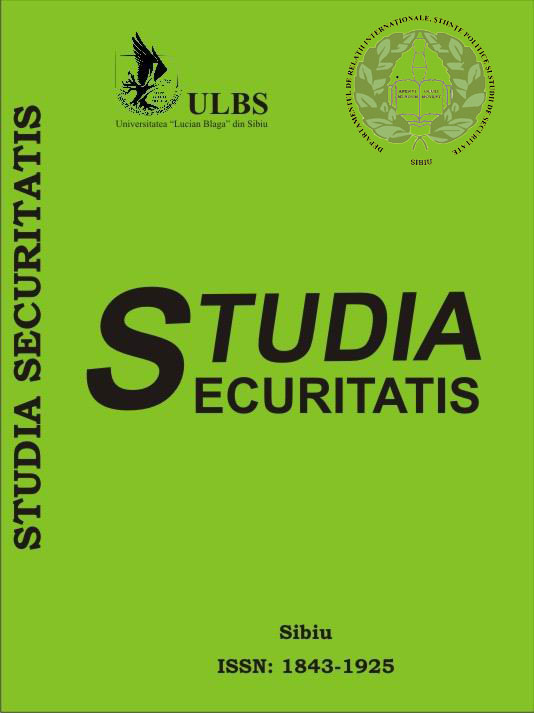
The concept of international security in the context of modern international law defines literally the trends of its development and codification. Or, today, not only the segment of state sovereignty has been emphasized, but also the segment of human security, which has to be strictly regulated in respect of the international law and to not be doubtful in this sense. Moreover, the segment of restoring the society degraded after a military intervention perfectly authorized from the international law point of view.
More...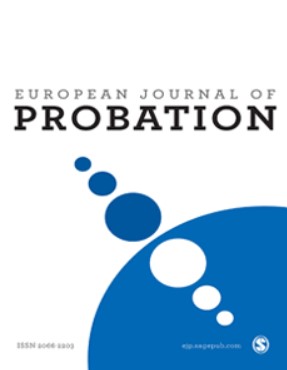
Since the 1980s, the criminal justice system in England and Wales has been recalibrated by the ideological and material forces of marketisation and competition. Specifically, the probation duty to advise, assist and befriend has been eroded by the instrumental functions of punishment and prison. These profound transformations have undermined the ethico-cultural foundations of criminal justice, indexed clearly in the privatisation of probation services between 2010 and 2015. The original contribution of this article draws upon Kantian deontological ethics to critique these events and to re-energise the moral coordinates of government policies and organisational practices. It confronts the current orthodoxy with the unconditional moral demand of duty and moral obligation.
More...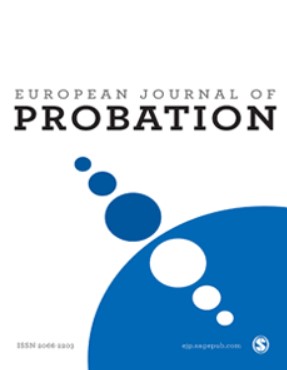
The relative ease of international travel, coupled with open borders across much of the European Union provides capacity for some serious violent or sexual offenders to utilise these advancements to increase their opportunities to offend. In 2013, an EU-funded project reviewed existing information exchange systems and the challenges of collaborative working across EU Member States to manage such offenders. This article reviews key issues arising from that research, and a range of ideological, ethical and legal differences and constraints that impact upon the choices and actions of law enforcement and probation personnel.
More...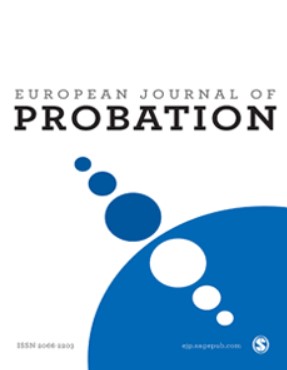
The article addresses key changes in Finnish probation work’s rationalities, mentalities and technologies from the 1960s to the present, examining them within a wider governance theory framework. The article asks how the following aspects of probation work have changed: (1) the conditions of probation work, (2) its institutional self-understanding, (3) its work methods and (4) its objectives. The thesis is that these changes have been connected to several synchronous and multi-layered developments, such as globalization, a re-orientation of Finnish social policy and the introduction of new methods and tools within probation work.
More...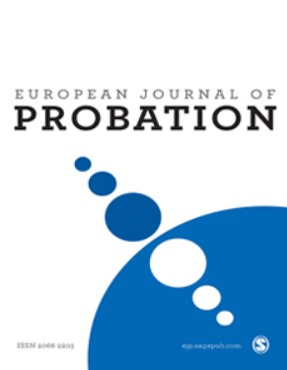
Literature on the media representation of probation highlights that probation as a ‘brand’ and concept is poorly understood and lacks public visibility. This has implications for its legitimacy and credibility. In this article we explore probation’s visibility in one country, the Republic of Ireland, through a critical analysis of print media representations of probation over a 12-year period (2001 to 2012). While our study finds that the majority of the coverage of probation was either positive or neutral in tone, we note a recent shift towards a more negative tone that we argue is reflective of the changing shape of the penal-probation boundaries. These changes are linked to resourcing of the criminal justice system and have implications for the public perception of probation.
More...
Am Mittwoch, den 4. Juli abends wurden in zahlreichen Wohnungen in Belgrad, Zagreb und Ljubljana Rotweinflaschen entkorkt: Die Abendnachrichten hatten von der provisorischen Freilassung der sechs seit Ende April bzw. Mai in Belgrad festgehaltenen Intellektuellen berichtet [vgl. gegenstimmen 16 184). Montag darauf, am 9. Juli, ungläubiges Entsetzen, Angst: In der bosnischen Hauptstadt Sarajevo wurde der knapp 30 jährige Soziologe Vojislav Seselj [sprich: Scheschelj\ zu acht Jahren Gefängnis verurteilt. Nicht einmal Milován Djilas wurde 1937 für seine "Neue Klasse" derartig drakonisch bestraft. Und Anfang August gab dann die Staatsanwaltschaft Belgrad die Anklageerhebung gegen die sechs bekannt.
More...
Beunruhigt über die Repression und besonders die Festnahme der 28 Personen, die in privatem Rahmen über die Beziehungen zwischen den Nationalitäten im Jugoslawien der Zwischenkriegszeit diskutiert haben, ebenso wie die Festnahme des Anwalts Srdja Popovic, haben Mihailo Markovic, Dobrica Cosic, Ljubomir Tadic und Zagorka Golubovic einen offenen Brief an das Staatspräsidium der Sozialistischen Föderativen Republik Jugoslawien (SFRJ) und das Präsidium der Sozialistischen Republik Serbiens geschrieben.
More...
Cattle grazing is an invaluable economic activity in the Western Highland of Cameroon and Noni-Sub Division in particular. The activity is a source of revenue, livelihood, organic manure and employment of many people in Noni Sub-Division (NSD). Unfortunately, this important economic activity is plagued by conflicts and environmental problems. The aim of this study was to investigate, evaluate, and improve on strategies that have been put in place to ensure the sustainability of this activity in the area. The methodology used to collect data was based on qualitative and quantitative techniques. Primary data were gotten through field observation, administration of questionnaires, focus group discussion and interviews. A total of 134 questionnaires were administered amongst 1000 stakeholders; graziers, crops farmers and administrators in NSD in 2019. Secondary data on the other hand were collected from published and unpublished documents and internet sources. The findings of this study revealed that the main problems affecting cattle grazing in NSD are farmer-grazier conflicts, destruction of vegetation, soil erosion and water pollution. It was also revealed that agro-pastoral commission and judiciary means are the main ways of resolving conflicts. The environmental problems have been given less attention. This study recommends the empowerment of the agro-pastoral commission, dialogue platforms, creation of forest reserves and agro-sylvo-pastoralism.
More...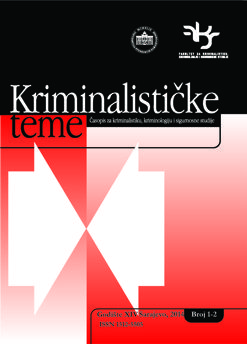
Review of: Adnan Fazlić - Karen T. Froeling, Nova Science Publishers, New York 2007., Criminology Research Focus (ISBN-13: 978-1-60692-601-7)
More...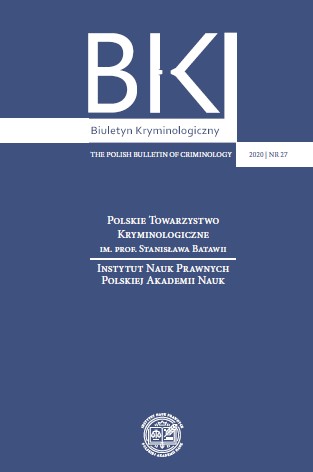
Review of: Katarzyna Witkowska-Rozpara - Gdy kara nie wystarcza… O praktyce stosowania wybranych rozwiązań prawnych wobec sprawców z zaburzeniami psychicznymi stwarzających zagrożenie dla społeczeństwa (A. Gutkowska, J. Włodarczyk- Madejska, J. Klimczak, P. Sidor, Wydawnictwo Instytutu Wymiaru Sprawiedliwości, Warszawa 2020)
More...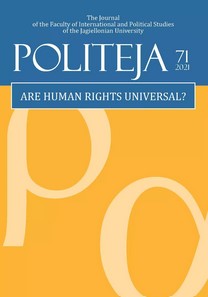
The United States does not comply with the International Convention on the Elimination of All Forms of Racial Discrimination (ICERD), which is the United Nations’ core binding anti-racism human rights convention. One hundred and seventy seven states, including the US, have ratified the anti-racism multilateral agreement. The nation entered into the pact in 1994 yet still has not implemented its obligations to the statute. This study focuses on the protections ICERD provides Latino immigrants who are not United States citizens as this group is often ignored in advocacy for implementation strategies. Areas where the United States does not comply with ICERD include discriminatory immigration policies and practices, violent and discriminatory policing, gendered violence, and inequalities in the criminal justice system. It is critical to examine ICERD’s protections for Latino non-citizens because it reveals how the group experiences racism differently than other people because they endure intersectional forms of systematic and institutional discrimination due to their race, ethnicity, citizenship status, gender, and other identity traits. Methodologies used in this study include analysis of ICERD’s monitoring body’s General Recommendations, and the monitoring body’s reports about the United States’ lack of compliance with the statute. These are the most powerful regulatory forces of the treaty due to the monitoring body’s positionality as experts about the pact appointed through the United Nations system.
More...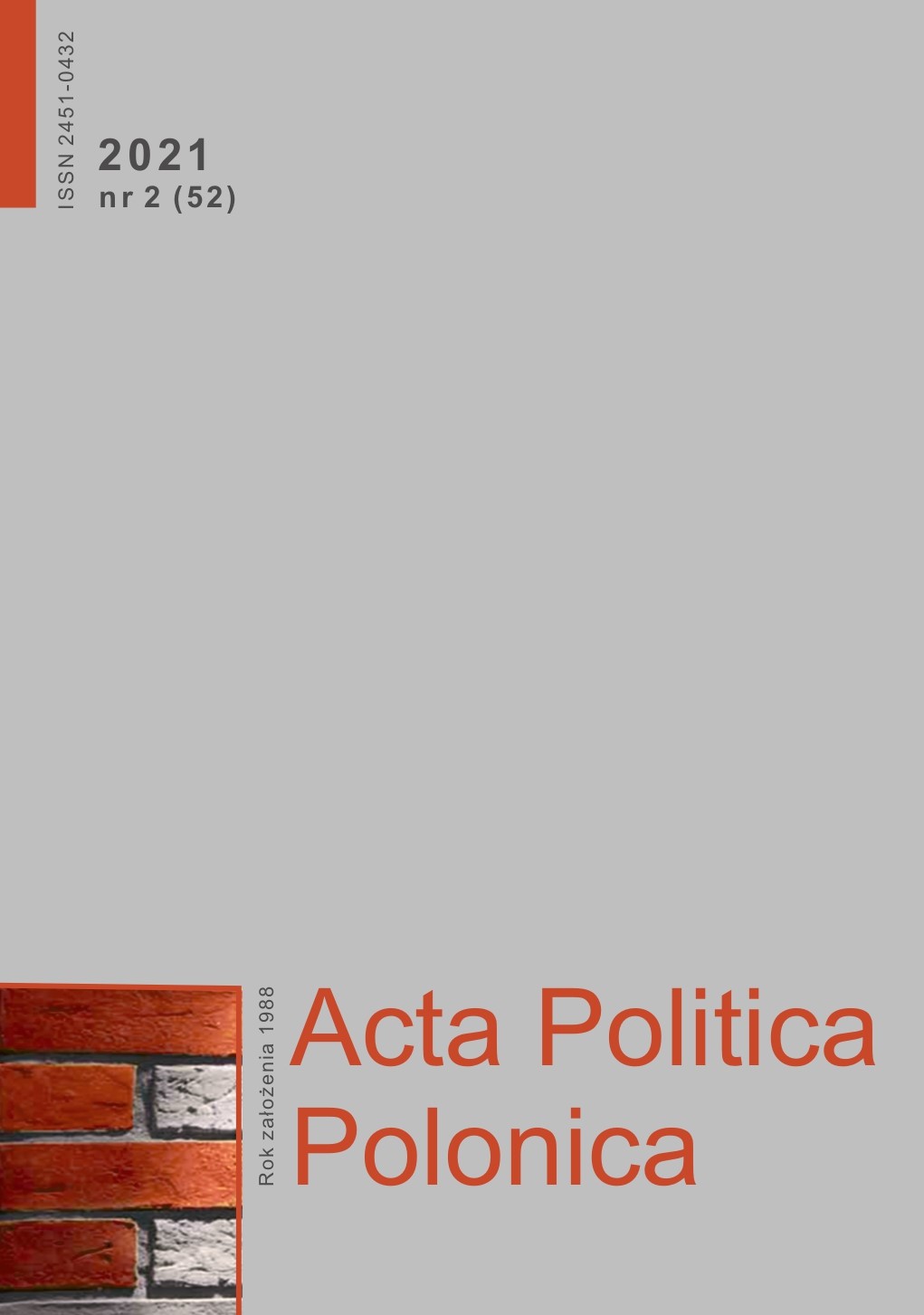
Katynizm as a system aimed at the destruction of the internal individual as well as society, uses various tools in the process of annihilation. One of them is undoubtedly the hate speech with its negation of the subject of the human person. It introduces disharmony to the internal area and violates the sense of security and decision-making. Hate speech as a tool of katynizm escalates the level of tension that does not recognize any ethical principles in the structure of social life.
More...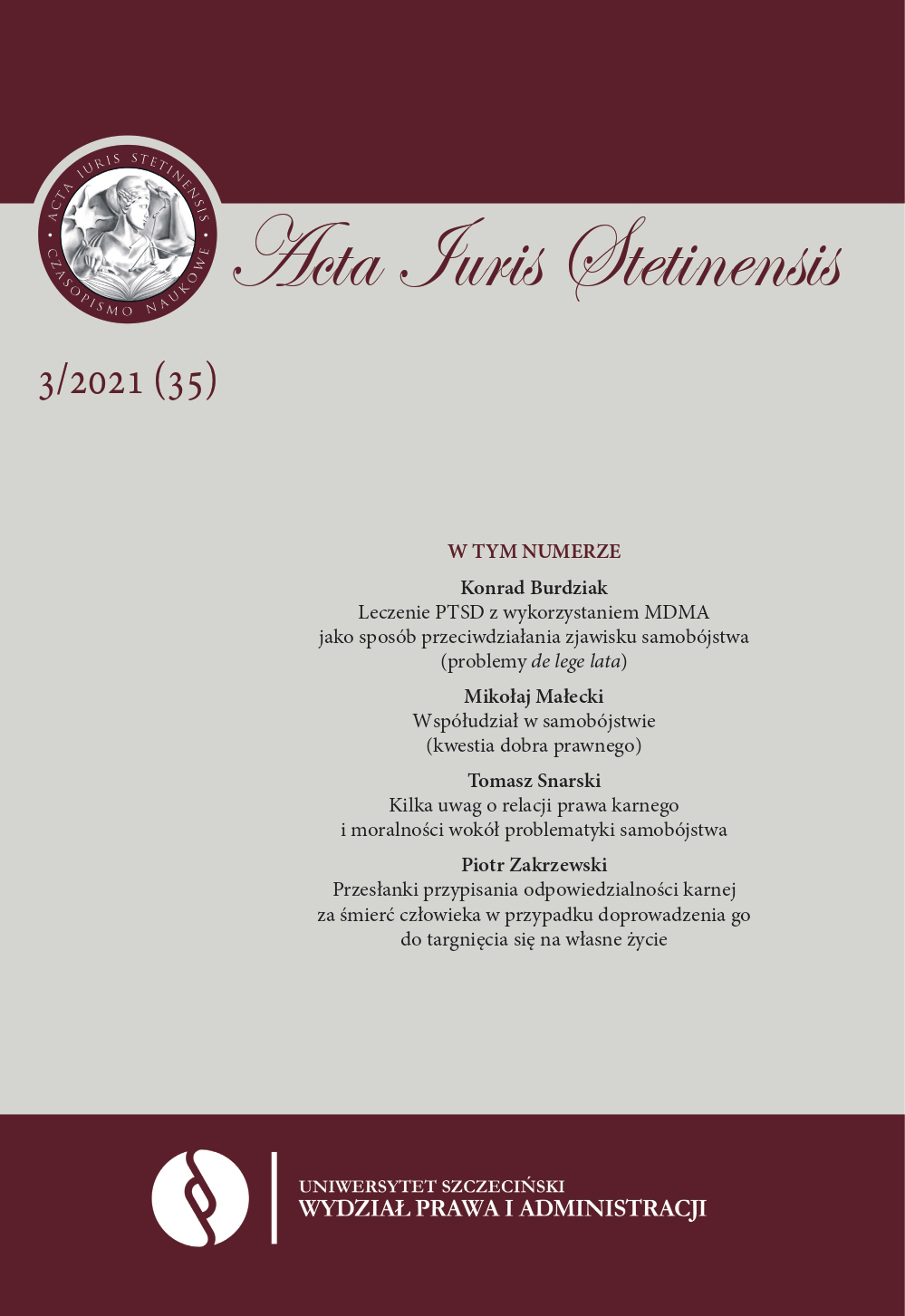
The article deals with the issue of the possibility of classifying some cases of euthanasia as the so-called abnormal motivational situation of the perpetrator. Therefore, with the literature on the function of motivation under criminal law as a basis, the article attempts to discuss the essence of an abnormal motivational situation using the concepts of motivational background and motivational conflict, and to translate these factors into the features of a prohibited act under Art. 150(1) of the Criminal Code. Moreover, using the interpretation of Art. 150(2) of the Criminal Code and views of criminal law scholars, the article analyses the function of Art. 150(2) of the Criminal Code and tries to demonstrate the legitimacy of a further reduction of criminal liability due to the abnormal motivational situation of the euthanasia’s perpetrator.
More...
The article aims to present a broad and diverse meaning of suicidal behaviour prevention. Based on the relevant academic literature, the importance of prevention has been shown as well as the application of its assumptions at various levels. Notable attention is given to suicidal behaviours among increasingly young students. Groups of factors influencing suicidal behaviour are identified, with particular emphasis on family, school, biopsychosocial factors as well as addictions. The role of various groups in the process of preventing suicidal behaviour is additionally determined. Finally, the author presents a proposal of actions intended to reduce young people’s negative reactions to difficult situations. The main thesis is to show the key role of preventive care in the process of prevention and minimising suicidal behaviour. For this purpose, the method of document examination is used. The author tries to shed light on the problem in question by means of a literature review, material selection and an analysis of reports and statistics, both national and international.
More...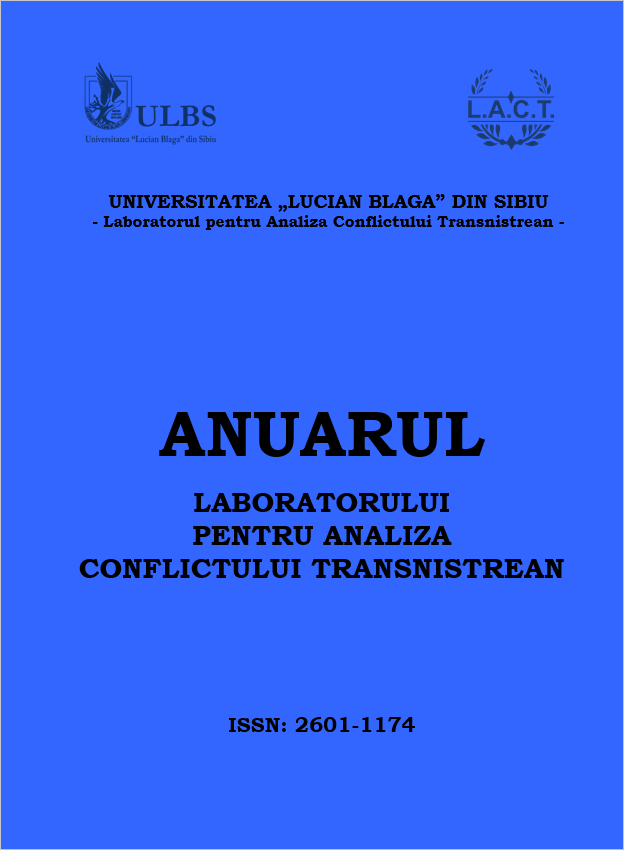
Change-makers seeks strengthen the relationships, knowledge, capabilities and make reel deep change, improving efficiency and satisfaction. Our core space for global security is to bridge reality and necessity through responsive tools in an environment of trustable international police cooperation. Creative action planning, sustainable activism, strong international police cooperation is shaping the global security sector. In order to design powerful police cooperation on international level and to clarify how to measure the change and its impact, it is relevant to understand and to follow the evolutions in this sector. Due to the genesis and unresolved conflicts in the area of Eastern Europe, including the Transnistrian conflict, the constitutional authorities of the Republic of Moldova can not carry out strategic or operational cooperation in this territory, which is not effectively controlled.
More...
The state of siege turned into an almost everyday experience in interwar Romania. From 1916 until 1928 and from 1933 until the end of the second World War, Romania was either partially or entirely under state of siege. This abuse of the state-of-siege mechanisms heavily contributed to the routinization of political violence and fuelled the crisis of the liberal order during the 1930s. Thus, it is no surprise that one of the vehicles of installing the dictatorship of King Carol II was Decree no. 856 from February 1938, which officially turned the state of siege into a permanent reality. In this context, General Ion Antonescu found, when seizing power in september 1940, a complex legal and institutional framework in charge with implementing the state of siege, entailing: the state-of-siege legislation, the secret services, the military prosecutor’s office, the military courts, and the political prisons. During Ion Antonescu’s rule, this legal and institutional framework was extended and turned into an effective tool for ethnic cleansing. Emergency narratives and state-of-siege legislation were used for carrying out deportations, for establishing and operating ghettos and concentration camps, and for the activity of the military courts. Drawing on Ernst Fraenkel’s concept of “the dual state”, this study aims at investigating the connections between the state of siege legislation and the institution of the camp in Romania under Antonescu’s regime. Because the issue of the camp under Antonescu’s regime is a complex one, which needs more space to deal with than an article could offer, this contribution will focus only on the case study of the Tȃrgu Jiu camp, as a model inspiring the development of other camps. The study is divided into two parts: (1) the former provides an overview of the state-of-siege legislation, its use in interwar Romania, and the instrumentalization of the narratives of national emergency during Antonescu’s seizure of power; (2) the latter part analyzes the role played by the state-of-siege legislation as a legal framework used to establish and operate camps during Ion Antonescu’s regime.
More...